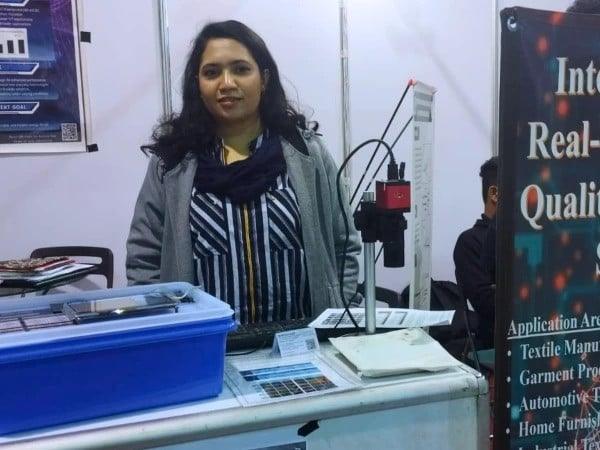Karachi:
A candidate from Ned University in Karachi has developed an artificial intelligence-driven system that is ready to solve one of the biggest challenges in the country’s textile industry-to detect drug flaws before production.
Innovation, called IntelliInspect, enables the identification of substance quality problems in real time, which can potentially save millions annually by reducing waste. The system promises to minimize the risk of rejected shipments in the export markets due to defective textiles, a recurring problem in Pakistan’s largest export industry.
“I think this is the world’s first analytical system of its kind. With the right support, IntelliIsPect could prove to be a milestone in improving the quality of Pakistan’s textile sector,” said Suboohi Arif, the system’s creator and a candidate with Thesis in automation and application technique.
The AI-driven technology can detect different defects in knitted and woven fabrics, such as broken threads, stains, tears and holes. Unlike traditional inspections, IntelliInspect analyzes untreated (gray) as well as colored and printed substances in real time.
Suboohi said tests of over 3,000 samples of both knitted and woven fabrics showed that the accuracy of the system was over 95 % and 90 % respectively. The registration time ranged from as little as 40 seconds to a maximum of 77 seconds.
The system uses high -speed sensors and cameras installed on textile production lines. It quickly identifies defects during the production process, reducing costs at later stages.
“This allows manufacturers to avoid producing defective substance and improving profitability by reducing loss of production,” she said.
The system can be used across multiple textile segments, including clothing production, automotive textiles, home equipment and industrial textiles. IntelliInspect improves efficiency, accuracy and continuity of production and at the same time reduces operating costs.
Suboohi is eager to collaborate with industry stakeholders to integrate the system into production facilities that help improve the quality of export products and at the same time maximize the profits for businesses.
“This technology not only reduces costs, but also opens up options for data -driven analysis, which improves decision making in the industry,” she added.
Pakistan’s textile sector, which accounts for over half of the country’s exports, has long struggled with quality control problems. If implemented on a large scale, IntelliInspect can mark a significant transformation for industry, increasing its global competitiveness.



